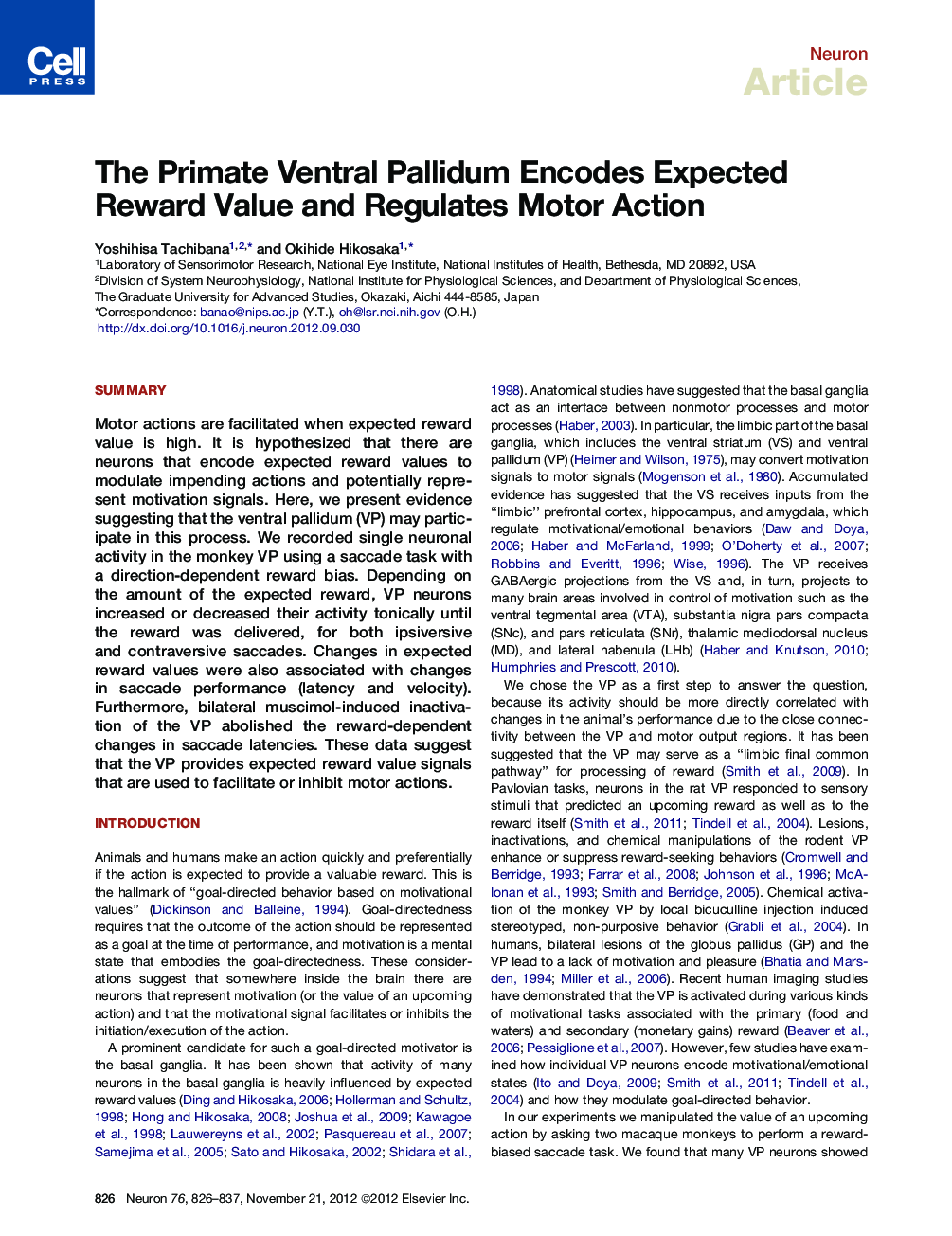| Article ID | Journal | Published Year | Pages | File Type |
|---|---|---|---|---|
| 4321265 | Neuron | 2012 | 12 Pages |
SummaryMotor actions are facilitated when expected reward value is high. It is hypothesized that there are neurons that encode expected reward values to modulate impending actions and potentially represent motivation signals. Here, we present evidence suggesting that the ventral pallidum (VP) may participate in this process. We recorded single neuronal activity in the monkey VP using a saccade task with a direction-dependent reward bias. Depending on the amount of the expected reward, VP neurons increased or decreased their activity tonically until the reward was delivered, for both ipsiversive and contraversive saccades. Changes in expected reward values were also associated with changes in saccade performance (latency and velocity). Furthermore, bilateral muscimol-induced inactivation of the VP abolished the reward-dependent changes in saccade latencies. These data suggest that the VP provides expected reward value signals that are used to facilitate or inhibit motor actions.
► Neurons in primate ventral pallidum (VP) encode expected reward values of actions ► VP neuronal activity changes stepwise, signaling the state of reward expectation ► VP neuronal activity is correlated with reward-based changes in oculomotor behavior ► Bilateral VP inactivation abolishes reward-biased changes in oculomotor behavior
